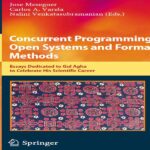- عنوان کتاب: Contemporary Materialism: Its Ontology and Epistemology
- نویسنده: Gustavo E. Romero
- حوزه: ماتریالیسم
- سال انتشار: 2022
- تعداد صفحه: 390
- زبان اصلی: انگلیسی
- نوع فایل: pdf
- حجم فایل: 5.21 مگابایت
ماتریالیسم چیست و امروز چه چیزی می تواند ارائه دهد؟ هدف این کتاب نشان دادن این است که ماتریالیسم بسیار فراتر از فیزیکالیسم است و رویکردهای فلسفی به ماتریالیسم میتواند بحثهای جاری درباره هستیشناسی و معرفتشناسی را تغییر دهد. با این حال، ماتریالیسم فلسفی برای انجام وظیفه باید هم از نتایج علمی به روز و هم از ظرافت های سنت فلسفی آگاه باشد. هدف ما کشف درک تازه از ماده و دانش خود از آن است، که نه تنها توسط فیزیک فعلی بلکه توسط علوم طبیعی، اجتماعی و زیست اجتماعی به خوبی آگاه شده است. بنابراین، فصول کتاب در مورد ماده کوانتومی، فضا-زمان، ماده زنده، ذهن، ریاضیات و منطق و غیره می پردازد. هدف ما نیز تقویت نقش ماتریالیسم فلسفی در تفسیر تاریخ اندیشه های فلسفی است. چندین فصل کتاب این کار را با هدف اصلاحات بدیع و نافذ انجام می دهند. ما امیدواریم که نتیجه نشان دهد که ماتریالیسم فلسفی به دلیل زنده بودن، تحقیقات و بحثهای بیشتر در موضوعات هستیشناختی و معرفتشناختی کنونی را تحریک میکند. مسیر این کتاب از یک میز بحث در مورد روابط بین علم، فلسفه و ایدئولوژی که توسط یکی از ما (لینو کامروبی) در دانشگاه بارسلون سازماندهی شده بود، شروع شد، جایی که دو نفر دیگر (گوستاوو رومرو و خاویر پرز خارا) بازدیدهای علمی داشتند. ما از مهمان نوازی UB و همچنین از مهمان نوازی خاویر روکه و خوزه رومو سپاسگزاریم. پس از تهیه پیشنویس موضوعات اصلی کتاب، با برخی از همکارانی که فکر میکردیم میتوانند چشمانداز تازهای را ارائه دهند، تماس گرفتیم. البته عمیقترین قدردانی ما از نویسندگان فصلها و بحثها بهخاطر کار خوبشان و تمایل آنها برای بحث در مورد پیشنویسهایشان با ما است، گاهی اوقات تا جزییات جزئی. برخی از کسانی که در ابتدا شرکت را پذیرفتند نتوانستند ادامه دهند، اما ما از آنها به خاطر اشتیاق اولیه شان تشکر می کنیم که باعث شد ما را بالا نگه داریم. از همان ابتدا، ما یک پاسخ بسیار مثبت از Otavio Bueno، سردبیر کتابخانه Springer Synthese دریافت کردیم. او نقش مهمی در این داشت که ما همه اینها را در زمان و شکل معین کنار هم قرار دهیم. جلسه دوم بین ویراستاران در دانشگاه سویل که به مدت 3 روز میزبان ما بود، شکل نهایی را به طرح پیشنهادی کتاب و همچنین به فصل تاریخی داد که پس از مقدمه کتاب را با آن باز می کنیم. بنابراین ما از دپارتمان منطق و فلسفه علم آنجا و به ویژه خوزه فریروس تشکر می کنیم. در طول نگارش، خاویر پرز خارا یک محقق مدعو در گروه مطالعات دینی دانشگاه استنفورد و گروه جامعه شناسی دانشگاه کیوتو سانگیو بود و مایل است به ترتیب از توماس شیهان، فوجینو آتسوکو، ایتو کیمیو، پیا تام و نوهارا جون تشکر کند. برای حمایت و بازخورد آنها در مورد تحقیقات خود. او همچنین از سانگ زنینگ، نیو هوایونگ و کین چوان در دانشکده بازرگانی بینالمللی دانشگاه مطالعات خارجی پکن برای حمایت و راهنماییشان از ابتدای این پروژه تشکر میکند. گوستاوو رومرو از دانشگاه ملی لاپلاتا، مؤسسه فناوری کارلسروهه (KIT)، دانشگاه بارسلونا، دانشگاه سویا، و مؤسسه علوم کیهانی (ICCUB)، دانشگاه بارسلونا، برای مهمان نوازی و حمایت در مراحل مختلف این پروژه او همچنین مدیون ماریو بانج برای بحث های زیادی در مورد موضوع این کتاب و ماهیت جهان کوانتومی است. در نهایت، ویراستاران همچنین از ژسوس لدو گارسیا به خاطر تخصصش در علوم کامپیوتر تشکر میکنند، که به ما کمک زیادی کرد تا کتاب تمام شده را به زبان لاتکس گردآوری کنیم. در جریان تهیه این کتاب، ماریو بانگ، یکی از فیلسوفان برجسته ماتریالیست قرن بیستم و بخشی از این قرن درگذشت. او 100 ساله بود. می خواهیم این جلد را به یاد او تقدیم کنیم.
What is materialism and what can it offer today? This book aims at showing that materialism is much more than physicalism and that philosophical approaches to materialism can redirect current discussions on ontology and epistemology. To be up to the task, however, philosophical materialism needs to be aware of both up-todate scientific results and the subtleties of the philosophical tradition. We aim to explore fresh understandings of matter and our knowledge of it, which are well-informed not only by current physics but also by natural, social, and biosocial sciences. Thus, the book’s chapters delve on quantum matter, spacetime, living matter, the mind, mathematics, and logic, among others. Our goal is also to strengthen the role of philosophical materialismin the interpretation of the history of philosophical ideas. Several of the book’s chapters do that work aiming at novel and penetrating revisions. The result, we hope, will show that philosophical materialism, being well alive, stimulates further research and discussions in current ontological and epistemological issues. The path to this book started at a discussion table on the relationships among science, philosophy, and ideology organized by one of us (Lino Camprubí) at the University of Barcelona, where the other two (Gustavo E. Romero and Javier Pérez- Jara) were paying academic visits. We are thankful for the UB’s hospitality as well as for that of Xavier Roqué and José Romo. After drafting the book’s main topics, we contacted some of the colleagues whom we thought could provide fresh outlooks. Our deepest gratitude goes of course to the authors of the chapters and discussions for their good work and their willingness to discuss their drafts with us, sometimes to minute details. Some of those who accepted to participate at first could not continue, but we thank them for their initial enthusiasm, which helped keeping ours high. From the onset, we got a very positive response from Otavio Bueno, editor of the Springer Synthese Library. He was instrumental in making us put all of this together in due time and shape. A second meeting between the editors at the University of Seville, which hosted us for 3 days, gave the final shape to the book proposal as well as to the historical chapter with which we open the book after the Introduction. We thus thank the Department of Logic and Philosophy of Science there, and in particular José Ferreirós. During writing, Javier Pérez-Jara was a visiting scholar at Stanford University’s Department of Religious Studies and Kyoto Sangyo University’s Department of Sociology, and he would like to thank, respectively, Thomas Sheehan, Fujino Atsuko, Ito Kimio, Piya Tom, and Nohara Jun for their support and feedback on his research. He also thanks Song Zening, Niu Huayong, and Qin Chuan at Beijing Foreign Studies University’s International Business School for their support and guidance from the beginning of this project. Gustavo E. Romero thanks the National University of La Plata, the Karlsruhe Institute of Technology (KIT), the University of Barcelona, the University of Seville, and the Institute of Cosmos Sciences (ICCUB), University of Barcelona, for hospitality and support at different stages of this project. He is also indebted to Mario Bunge for many discussions on the topic of this book and the nature of the quantum world. Finally, the editors also thank Jesús Ledo García for his expertise in computer science, which greatly helped us to compile the finished book in LATEX. During the preparation of this book, Mario Bunge, one of the leading materialist philosophers of the twentieth century and part of this century passed away. He was 100 years old. We want to dedicate this volume to his memory.
این کتاب را میتوانید بصورت رایگان از لینک زیر دانلود نمایید.
Download: Contemporary Materialism: Its Ontology and Epistemology





































نظرات کاربران